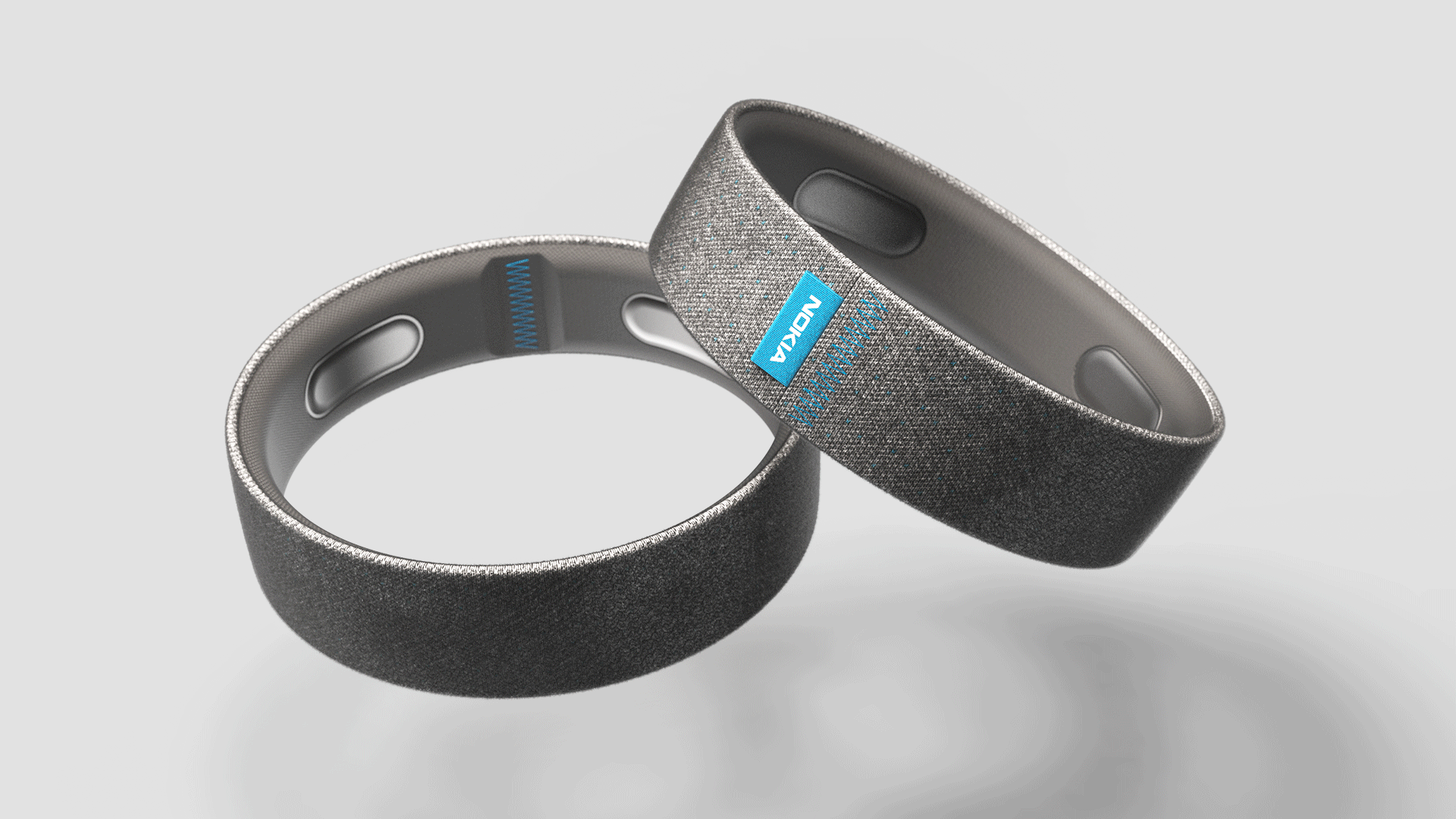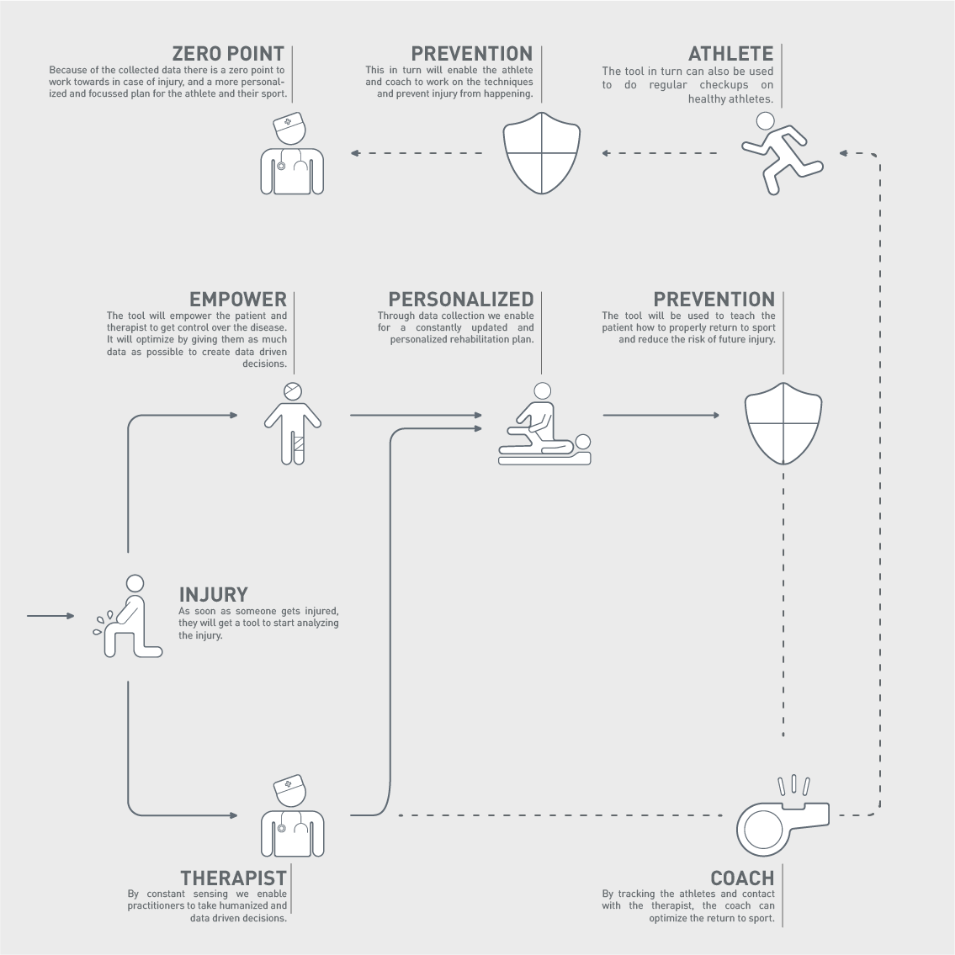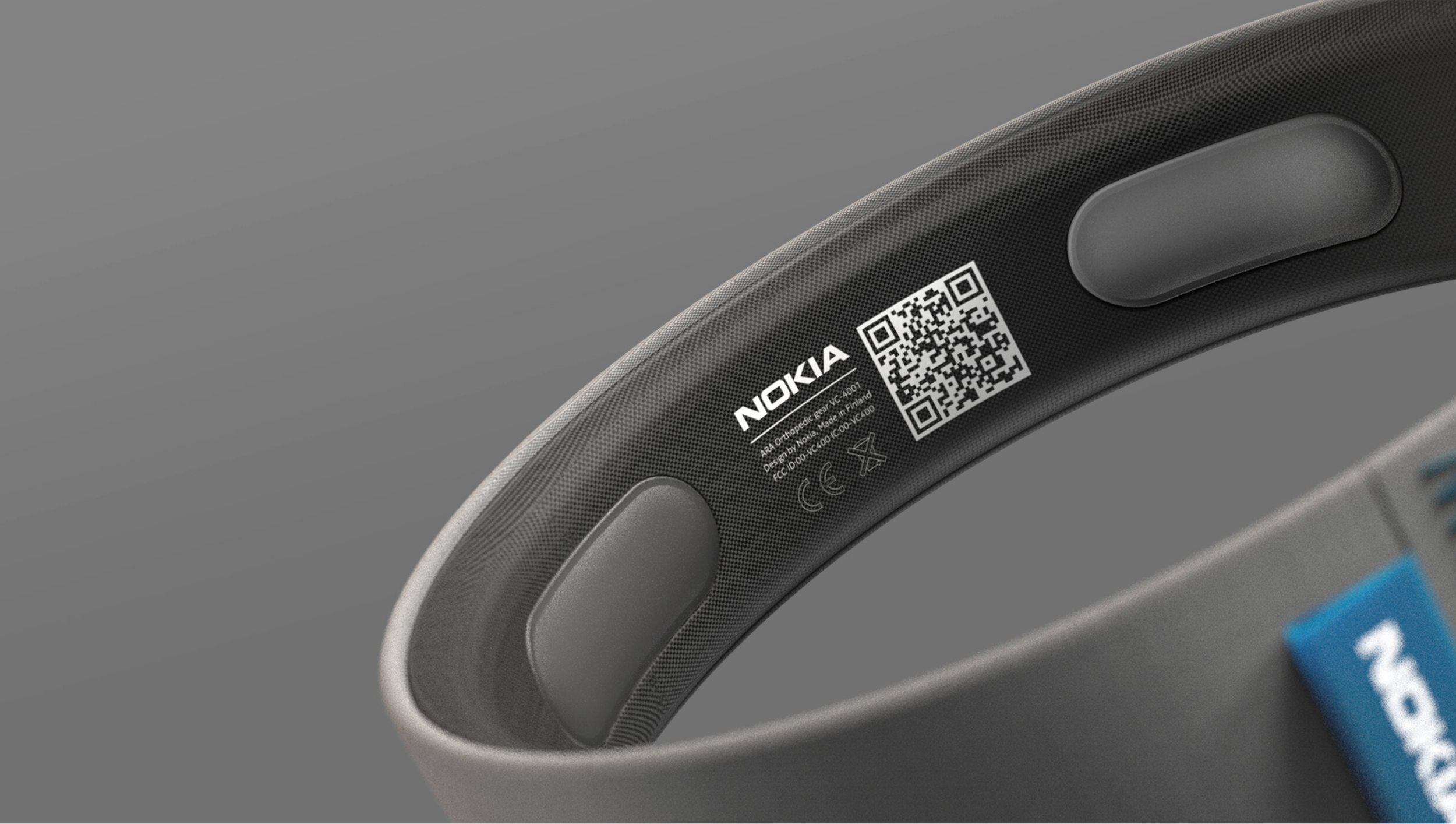
NOKIA ARA EMPOWERING PATIENTS AND PRACTITIONERS THROUGH PERSONALIZED ACL REHABILITATION
Nokia Ara is an Orthopedic tool that monitors patients with knee injuries and personalises their therapy.
CHALLENGE
Interviews, shadowing sessions, and workshops with patients, athletes, surgeons, and therapists highlighted the need for personalized rehabilitation. Current therapy methods are standardized and heavily depend on the therapist’s expertise. The challenge was to create a personalized rehabilitation plan to help patients recover faster and easier.
PROJECT OUTLINE
Ara is a thesis project conducted at the Umeå Institute of Design in collaboration with Nokia. Knee injuries, particularly ACL injuries, impact approximately 2.5 million people annually, often resulting in long-term weakness and a heightened risk of reinjury. This project aimed to empower patients with ACL injuries by facilitating a faster, more efficient recovery process through innovative design and technology.
RESULT
The outcome is Ara, a smart rehabilitation bracelet that continuously monitors the injured knee. Ara provides real-time insights, enabling therapists to make data-driven, personalized decisions. Patients receive live feedback, actively participating in their recovery process.
MEET ARA
Ara is a smart rehabilitation bracelet that offers constant monitoring and insights, allowing therapists to make informed, personalized decisions. Designed to be discreet, Ara prvides the benefits of technology without being visually intrusive. The concept includes three main items: the bracelet for monitoring, an app for communication and adapting therapy, andaa charging unit. As people do not wish to have the stigma of wearing healthcare Technology but just wish to recieve the benefits, the exterior of the device is designed in a minimalistic way.

“when we are rehabilitating the knee the most important thing is not the surgeon, he or she can perform a semi correct job or a really good one and it won’t matter too much on the result. The most important thing is the physiotherapist, Unfortunately there are big differences between Therapists”
MARCUS BOHLIN CHIEF ORTHOPEDIC SURGEON AT NORRLAND UNIVERSITY HOSPITAL SWEDEN (DURING RESEARCH)
“THIS could be the next big thing in healthcare”
MARCUS BOHLIN CHIEF ORTHOPEDIC SURGEON AT NORRLAND UNIVERSITY HOSPITAL SWEDEN (UPON PRESENTATION AND VALIDATION OF THE DESIGN)
RETHINKING THE REHABILITATION PROCESS
To approach the design challenge first a new scenario had to be created in which the current rehabilitation process was challenged an optimised. The resulting scenario now works as follows: As soon as an individual gets injured, he/she receives Ara, who starts to monitor the injury. This information is then shared with the therapist which enables him/her to take data driven decisions and inform the patient about their injury and how to get better. Through this, patients will receive a personalised rehabilitation experience which ends with teaching individuals how to prevent the injury from happening again. Furthermore this device can be used by individuals and athletes who then reduce the risk of injuries from happening by working on preventive training. All this data can then be collected in a general database which in turn helps healthcare providers get a better understanding of the injury and optimise the rehabilitation processes for each individual.
CALLIBRATING ARA
Patients receive Ara form their therapists who will first calibrate the device on the healthy knee of the patient. This is to gain a so called "zero point" as a reference what strength the other knee should have at the end of the rehabilitation. By doing this the therapist ensures that the patient will regain proper balance and the therapy has its goals optimised for each individual.
DIRECT FEEDBACK
One of the biggest problems with rehabilitation is to know when you have done enough exercises for the day. Ara's integrated vibration engines provide immediate feedback, preventing patients from overexerting themselves and risking further injury. This feature ensures patients perform the right amount of exercises daily, optimizing recovery.
REHABILITATION COACH
When patients have to perform exercises for their therapy it is important that they learn the correct technique. This since it will help them to reduce the risk of future injuries from happening. Ara's app acts as a personal rehabilitation coach, offering real-time feedback to patients performing exercises. This guidance helps patients learn the correct techniques, reducing the risk of future injuries.
Designed for Sustainability
Ara is designed with sustainability in mind, considering both its current lifecycle and future recycling. Linked to a product passport via a QR code, Ara can be easily disassembled for recycling. The textiles are compostable, and the technology components can be efficiently recycled by removing the plastic outer layer.
Sustainability for profitability
Ara demonstrates that sustainability can be profitable. By optimizing the assembly and recovery process, Nokia can reuse materials and components, turning potential waste into valuable resources. This approach benefits the environment and reduces production costs, showcasing that sustainable practices can drive profitability.








